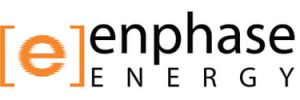Types of Solar Batteries: A Comprehensive Guide
Solar energy has quickly become an essential part of our lives, transforming the way we power our homes and businesses. But what’s the secret ingredient that makes it all possible? Solar batteries! They play a crucial role in storing the energy generated by solar panels, allowing us to use it whenever we need it. In this comprehensive guide, we’ll delve into the world of solar batteries, exploring their importance, the different types of solar batteries available, and how to choose the right one for your needs. So, let’s get started on your journey to a more sustainable future!
Short Summary
- Solar batteries are essential for taking full advantage of solar power systems, allowing users to save money and reduce reliance on the grid.
- Lithium-ion batteries have become a popular choice due to their high energy density, efficiency and long lifespan.
- Lead acid batteries offer lower cost with proven reliability while nickel cadmium provide durability in extreme temperatures. Flow battery technology is emerging but limited by cost & size.
Understanding Solar Batteries
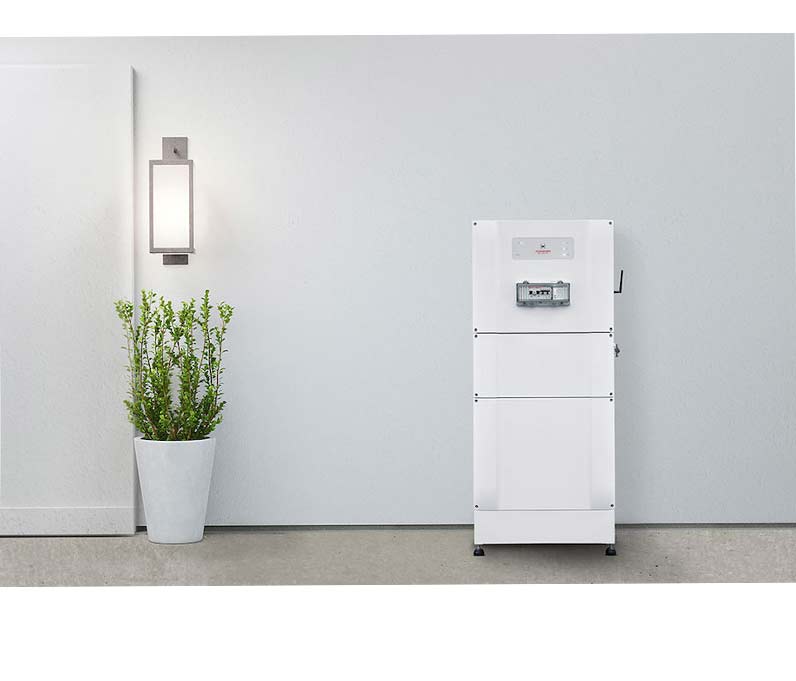
Solar batteries have revolutionized the renewable energy landscape by providing a reliable way to store the energy generated by solar panels for future use. As the sun’s intensity fluctuates throughout the day and is absent during the night, solar energy production isn’t consistent. This is where solar batteries come in, acting as the backbone of an efficient solar system by storing surplus energy for use when needed.
There are several solar battery types available, each with its unique features and benefits. Lithium-ion batteries are the most widely used type of battery. Other popular types include lead acid solar batteries, nickel-cadmium batteries, and flow batteries. These batteries are specifically designed to be used outdoors. They offer extreme protection against temperatures, moisture and vibration, making them ideal for rugged conditions. The choice of the right solar battery for your system depends on various factors, which we’ll explore further in this guide.
Why Solar Batteries Matter
Solar batteries are essential for ensuring the efficiency and self-sufficiency of solar power systems. By storing the surplus energy generated by solar panels, they allow users to rely less on the grid and avoid power outages. This not only enables homeowners to save money on their energy bills, but also contributes to a greener environment by reducing the reliance on fossil fuels.
High-quality solar batteries are paramount to the success of an off-grid solar system. Investing in the right battery technology can significantly enhance the efficiency and longevity of your system, providing you with reliable energy storage for years to come.
The Growing Demand for Solar Battery Storage
As more and more people adopt solar energy systems, the demand for dependable energy storage solutions is rapidly increasing. With advancements in technology and the growing awareness of the environmental benefits of renewable energy, solar batteries have become an essential component in modern solar systems.
Lithium-ion and lead-acid batteries are the two most popular residential solar energy storage choices. Each type has its advantages, and the choice between them depends on factors such as cost, capacity, efficiency, and safety.
In the following sections, we’ll dive deeper into each type of solar battery, exploring their features, benefits, and possible drawbacks.
Lithium-Ion Batteries: The Popular Choice
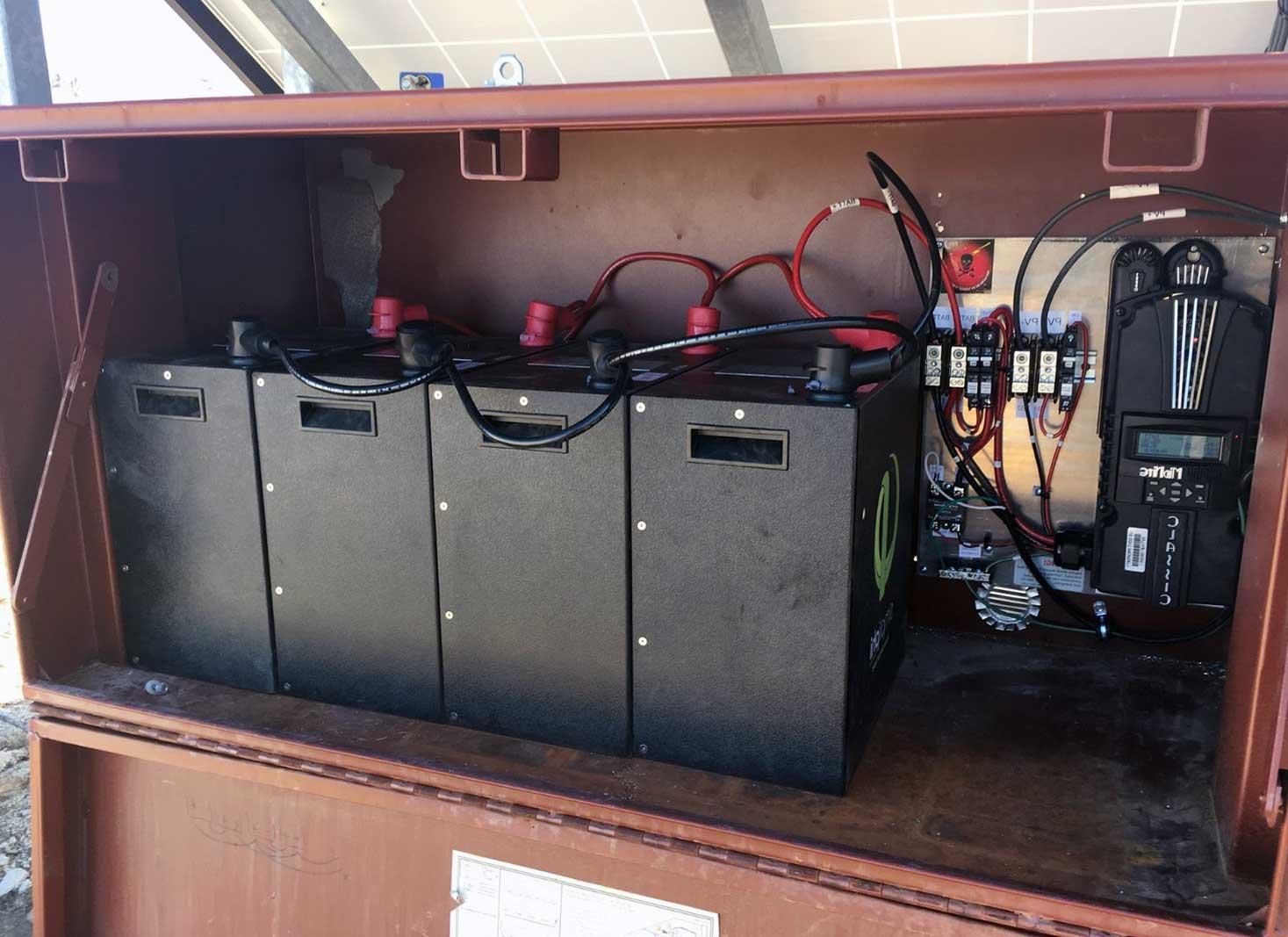
Lithium-ion batteries have emerged as the most popular choice for solar energy storage, thanks to their high energy density, efficiency, and long lifespan. They are widely used in various applications, from small portable devices to electric vehicles and large-scale energy storage systems. The growth of the electric car industry has spurred significant advancements in lithium-ion battery technology, further boosting their popularity in solar energy storage.
These batteries offer a compact and lightweight solution for solar energy storage, making them ideal for homeowners and businesses looking to minimize their environmental footprint and maximize the return on their solar investment.
Let’s take a closer look at the advantages and types of lithium-ion batteries.
Advantages of Lithium-Ion Batteries
One of the key advantages of lithium-ion batteries is their high energy density, allowing them to store more energy in a smaller footprint than other battery types. This makes them an attractive option for homeowners with limited space or businesses looking to maximize their energy storage capabilities.
In addition, lithium-ion batteries exhibit a higher depth of discharge and a longer lifespan compared to lead-acid batteries, enabling them to be used for more energy before requiring recharging. Lithium-ion batteries also require minimal maintenance, making them a convenient choice for busy homeowners and businesses who may also consider lithium batteries as an alternative option.
Their lightweight nature and ease of installation further add to their appeal, making them a top choice for solar energy storage in various applications.
Types of Lithium-Ion Batteries
There are several types of lithium-ion batteries available, each offering distinct benefits and catering to different applications. Lithium ferro phosphate (LFP) and nickel manganese cobalt (NMC) batteries are the two commonly used types of batteries. These batteries have a wide range of uses in various industries.
NMC batteries offer the potential for higher charge rates, making them suitable for applications that require rapid charging. However, they have a higher risk of thermal runaway, which can result in fires. On the other hand, LFP batteries use lithium iron phosphate chemistry, which provides a safer alternative with a longer life expectancy.
Choosing between these types of lithium-ion batteries depends on your specific requirements and priorities, such as safety, charge rate, and energy storage capacity.
Lead Acid Batteries: The Traditional Option
Lead acid batteries are a traditional option for solar energy storage, known for their reliability and lower upfront cost. While they may not offer the same energy density and lifespan as lithium-ion batteries, they remain popular for many homeowners and businesses looking for a cost-effective energy storage solution.
There are different types of lead acid batteries available, each with its own set of advantages and disadvantages. In the next sections, we’ll explore the pros and cons of lead acid batteries and the differences between flooded and sealed options.
Pros and Cons of Lead Acid Batteries
Lead acid batteries offer a lower energy density than lithium-ion batteries, which requires more space to store the same amount of energy. Additionally, the lifespan of a lead acid battery is generally shorter than that of lithium-ion batteries, requiring more frequent replacement.
Despite these drawbacks, lead acid batteries remain a popular choice due to their lower initial cost and proven reliability. For those on a budget or with less demanding energy storage requirements, lead acid batteries can provide a suitable solution.
Flooded vs. Sealed Lead Acid Batteries
Flooded lead acid batteries require regular maintenance and venting, making them a labor-intensive option for solar energy storage. However, they are often more affordable than sealed lead acid batteries, which can be an important consideration for homeowners and businesses looking to minimize their upfront costs.
Sealed lead acid batteries, on the other hand, are maintenance-free and do not require venting, making them a more user-friendly option for solar energy storage. While they may come with a higher initial cost, their ease of use and reduced maintenance requirements can make them a more attractive choice for many solar energy systems.
Nickel Cadmium Batteries: The Durable Alternative
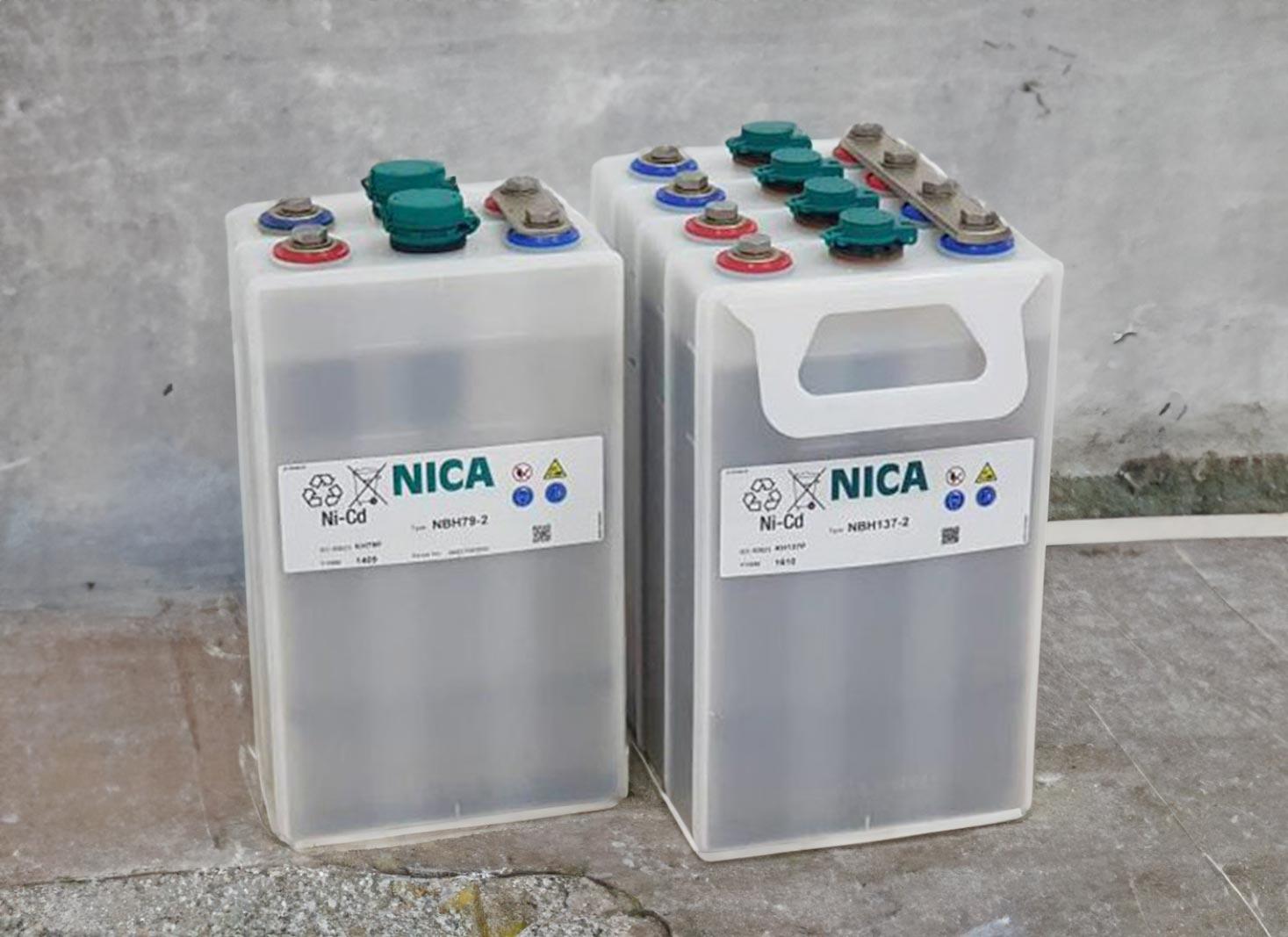
Nickel-cadmium batteries are a durable alternative for solar energy storage, often used in industrial and airline settings. These batteries are known for their ability to operate in extreme temperatures and require minimal maintenance, making them an attractive option for demanding applications.
While less widely used than lithium-ion or lead acid batteries, nickel-cadmium batteries offer a unique set of advantages that can make them a suitable choice for certain solar energy systems. Let’s take a closer look at the characteristics of nickel-cadmium batteries and their environmental concerns.
Characteristics of Nickel Cadmium Batteries
Nickel-cadmium batteries are renowned for their durability and ability to function in extreme temperatures. Their high power density, resistance to deep discharges, and long cycle life make them suitable for applications that require a robust and reliable energy storage solution.
Despite their advantages, nickel-cadmium batteries are prone to the memory effect, which can result in a reduced capacity over time if not properly managed. However, with proper care and maintenance, these batteries can provide reliable energy storage in challenging environments.
Environmental Concerns and Disposal
One of the primary concerns associated with nickel-cadmium batteries is the use of cadmium, a highly toxic element that can have detrimental effects on the environment if not disposed of correctly. Proper disposal methods, such as recycling or adhering to local regulations, are essential to minimize the environmental impact of these batteries.
While nickel-cadmium batteries may not be the most environmentally friendly option, their durability and ability to operate in extreme temperatures can make them a viable choice for certain applications where other battery types may not be suitable.
Flow Batteries: The Emerging Technology
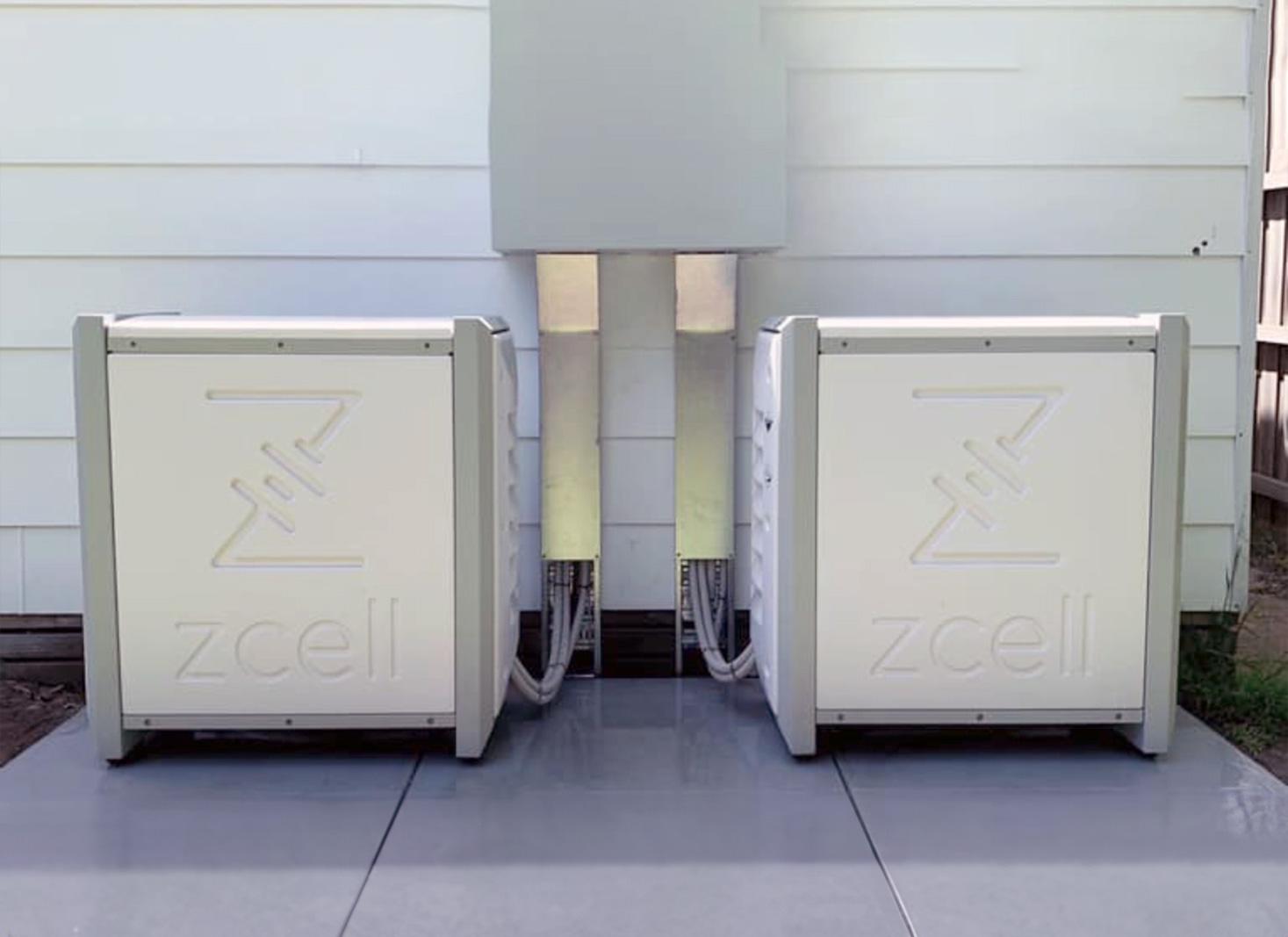
Flow batteries are an emerging technology in solar energy storage, using a water-based electrolyte solution for energy storage. This unique approach to energy storage allows for high efficiency and scalability, making flow batteries an interesting option for large-scale solar energy systems.
However, flow batteries have yet to be as widely used as lithium-ion or lead acid batteries, due to their higher initial cost and larger size. In the following sections, we’ll explore how flow batteries work and the advantages and challenges associated with this emerging technology.
How Flow Batteries Work
Flow batteries store energy through chemical reactions between two separate electrolyte chambers. By circulating the electrolyte containing one or more dissolved electroactive elements through an electrochemical cell, electrons and ions are exchanged between the analyte and the catholyte, allowing the flow of electricity.
This unique method of energy storage enables flow batteries to have a large capacity and be used for extended periods of time, with a lifespan of up to 30 years. However, they also come with challenges such as high initial costs and the need for a considerable amount of space for installation.
Advantages and Challenges of Flow Batteries
Flow batteries offer several advantages, including extended cycle life, straightforward scalability, and minimal self-discharge. They are also considered safer than other battery types, as they do not pose the risk of thermal runaway or fire. These benefits make flow batteries an attractive option for large-scale solar energy systems requiring high reliability and efficiency.
However, flow batteries also come with several challenges, such as the expense of the fluids used and the complexity of the system. While their cost is currently higher than that of lithium-ion batteries, ongoing research and development efforts aim to address these concerns and make flow batteries a more viable option for solar energy storage in the future.
Selecting the Right Solar Battery for Your Needs
Choosing the right solar battery for your needs is essential to maximizing the efficiency and longevity of your solar energy system. Various factors such as energy capacity, efficiency, lifespan, and budget should be considered when selecting the ideal solar battery for your specific requirements.
In the following sections, we’ll discuss the factors to consider when choosing a solar battery and some of the top solar battery brands and models available in the market today. This information will help you decide and find the best solar battery for your unique needs.
Factors to Consider When Choosing a Solar Battery
When selecting a solar battery, it’s important to consider factors such as size, weight, initial and ongoing costs, battery capacity, ambient temperature, and warranty. The size and weight of the battery should be taken into account when assessing the installation location and available space, while the initial cost includes the cost of the battery itself, installation costs, and any supplementary equipment required.
Ongoing costs include maintenance and replacement costs, which can vary depending on the type of battery chosen. It’s also important to consider battery capacity, as this will determine the amount of energy that can be stored and the longevity of the battery.
Finally, the ambient temperature and warranty should also be considered, as these factors can impact the performance and lifespan of the solar battery.
Top Solar Battery Brands and Models
Some of the top solar battery brands and models available today include Sungrow, Redback and Alpha ESS. Each of these options offers various features and benefits, catering to different solar energy systems and user requirements.
The Redback is a popular lithium-ion battery with a capacity of up to 14 kWh, while the Sungrow is another lithium-ion option designed specifically for residential energy storage.
By carefully evaluating the features and benefits of these top solar battery options, you can find the one that best suits your individual needs and solar energy system.
Summary
In conclusion, solar batteries play a vital role in harnessing the power of the sun and storing it for future use. With a variety of options available, including lithium-ion, lead acid, nickel cadmium, and flow batteries, it’s essential to carefully consider factors such as energy capacity, efficiency, lifespan, and budget to find the perfect solar battery for your needs. By investing in the right solar battery, you can maximize the efficiency and longevity of your solar energy system, contributing to a more sustainable and eco-friendly future.
FAQ's
Understanding the types of solar batteries is an important step in taking advantage of solar energy. The four main options are lead-acid, lithium-ion, flow batteries, and nickel cadmium. Each offers different capabilities and advantages, allowing you to tailor your setup to best fit your needs.
For solar installations, lithium ion batteries are the best option due to their size and capacity for storing energy, making them ideal for residential power systems. They provide ample power while being small in size and allow you to utilize most of the energy stored within the battery.
This makes them a great choice for those looking to install solar panels in their homes, as they can provide a reliable source of energy while taking up minimal space.
There are three primary battery types that are commonly used by consumers: alkaline, nickel metal hydride (NIMH) and lithium ion. Each type offers unique benefits and drawbacks for powering everyday devices, and each one has its place in technology history.
Alkaline batteries are the most common type of battery and are often used in small electronics such as remote controls and toys. They are inexpensive and have a long shelf life, but they don’t last as long as other types of batteries.
When choosing a solar battery, it is important to take into account a range of factors such as size, weight, initial and ongoing costs, battery capacity, ambient temperature, and warranty.
Evaluating these criteria will help you make an informed choice for your individual needs.
Solar battery lifespans can vary considerably, from 5 to 15 years depending on the size, brand, and type of battery.
When maintained properly, solar batteries can last for around 5 to 15 years, ensuring that your solar energy setup can continue providing power over many years.





